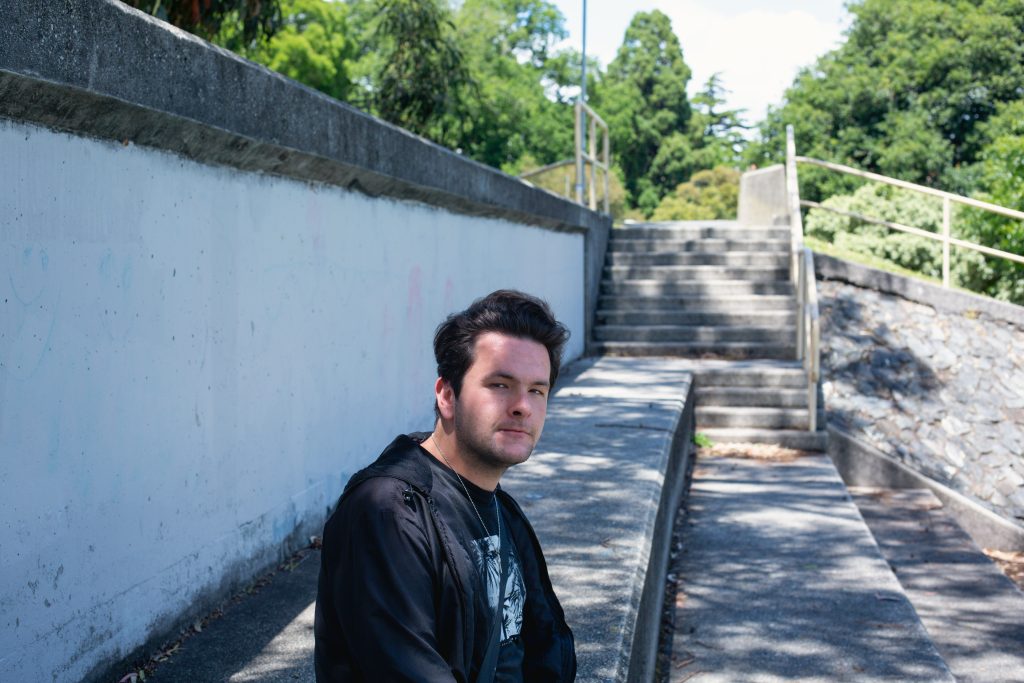Collaborative care turns the page for Tumanako
Posted on December 22, 2023

Tumanako emerges from his group therapy session, reserved but smiling.
He engaged with Launceston Head to Health during a period of homelessness and acute mental distress; now he feels ready to share some of his story.
The 21-year-old wears rings on his fingers, which he twists as he reflects: “I wasn’t well. I wasn’t doing very well at all.”
Mental illness can be episodic or persistent, and the National Study of Mental Health and Wellbeing of Australians aged 16-85 in 2020-21 found that over 2 in 5 (44%) of Australians will experience mental ill-health in their lifetime.
“I was having delusions,” Tumanako states matter-of-factly.
“I wasn’t sleeping well because of my living situation.”
A support worker at Launceston’s City Mission, where he was engaged in job-seeking activities, connected him with the adult mental health centre.
He needed to find a job, but he was sleeping poorly due to a lack of secure housing and his mood changed rapidly, with extreme highs and lows.
He didn’t know yet that this was due to untreated bipolar and schizophreniform disorders.
The support worker from City Mission booked Tumanako an appointment at Launceston Head to Health, which is a welcoming ‘no wrong door’ entry point for adults who need immediate support – as well as family and friends needing information and advice.
Tricia Ashton and Naomi Simpson-Kitt – Head to Health peer support workers with lived experience of mental health challenges – met him that same afternoon.
Naomi and Trish say Head to Health clients are positioned to shape their own support experience.
“Peer work is embedded within the model of care at Head to Health, but we work alongside other types of mental health workers so that the person receives care that is appropriate for them and their individual needs,” Naomi says.
Trish says many of her clients are surprised to learn she has lived experience herself.
“Lived experience peer work roles really highlight the possibility of recovery, not only important for inspiring hope for people struggling with their mental health, but also to challenge stigma in the public realm – which is unfortunately still present, even in health settings,” Trish says.
But, she adds, “Not everyone will want a peer worker for their needs. The main thing is, they choose. They know what’s best for their recovery and drive this process.”
Tumanako says he felt welcomed and safe from his first meeting with staff.
“I said what I wanted to say, and then at the end, I was given a piece of paper with some things I could do, some strategies,” he says.
Tumanako attended weekly appointments with Trish, who provided emotional and practical wellbeing support in their sessions.
She also linked him to a Baptcare ‘Fundamentals’ group therapy and education course, City Mission’s ‘Mission 2 a Future’ job-seeking service, and additional Wellways support.
Tumanako has a National Disability Insurance Scheme (NDIS) plan, which negates his eligibility to some programs, but Trish worked alongside other providers and program facilitators to find the appropriate support.
“I worked with colleagues at Baptcare and the Wellways Recovery program to fill gaps,” Trish says.
“Alongside this, Mission 2 a Future assisted him in relation to his work goals. You can see how Head to Health’s connections with other services are essential to providing well-rounded support to meet all needs.”
Tumanako says talking to Trish about issues and developing strategies was useful, and he found appointments with his peer worker less anxiety-inducing than some of his other experiences with health appointments.
“They’re really good and down-to-earth. It’s more laid back than when I see other health professionals,” he says.
Tumanako explains that Trish had helped him open up about difficulties with familial relationships and how his circumstances impacted on his health.
He also highlights the value of having a ‘real’ interaction with providers who understand the challenges of living with mental health difficulties.
And how his peer support workers helped him get back on his feet using their personal and professional knowledge and experiences.
Centre manager Darren McKay says Tumanako’s experience is a testament to the collaborative approach that Launceston Head to Health aims to foster, to achieve end-to-end integrated care.
“This is a great example of the Head to Health model, peer work and the importance of a collaborative approach,” Darren says.
“We were able to see him the day he was referred, and he was linked in with peer workers who had the time and understanding to know how support him and work collaboratively with other services to give him the wrap-around support he required.”
Both Naomi and Trish come from other industry settings, and they understand that the full spectrum of concerns a client may have when they seek crisis mental health support may need a range of services to address them.
“I came from working in the disability sector for some time, so I have that lens alongside my training in mental health-specific care,” Naomi says.
Darren says besides the primary focus of acute mental health care, the service prioritises integrating services for a holistic wrap-around support system for participants.
“Since Launceston Head to Health has been open, besides the work we do with people, we have also collaborated with over 50 external services to run health promotions activities, support groups and one-on-one work,” he says.
Tumanako says he is glad to have received this personal and integrated care when he needed it.
“I’m glad that chapter has closed. Things are much better than when I was first referred. And the things I learned, from the psychological support and the other services, have really helped me.”
This story features in Issue 17 of our Primary Health Matters magazine. Click here to read the rest of the issue.
